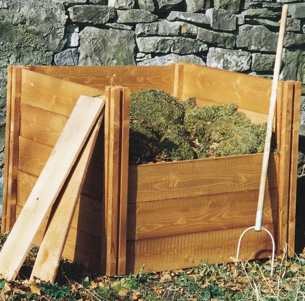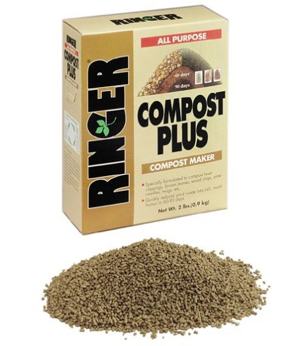Composting 101: The Nitty Gritty
Before jumping in and starting your composting adventure, it might be helpful to know a little bit about how the process works.
The breaking down of organic matter into compost is quite a complicated endeavor, but luckily Mother Nature knows what she's doing, and she's going to be taking care of most of the details for you.
So without getting too bogged down in the science of it, here is a short overview of what exactly is going to be happening in your compost pile, and how you can help keep things on track.
Everything Breaks Down
Composting is really just a fancy way of saying that your organic matter is decomposing. Critters in your compost pile are going to get your waste decomposing two ways: physically and chemically.
Physical Decomposition
A community of hard-working little invertebrates get the ball rolling by chewing, shredding, and grinding larger pieces of plant matter into smaller pieces with more surface area. This early stage of decomposition allows bacteria and other chemical decomposers to do their part.
Chemical Decomposition
During this stage of composting, microbes like bacteria and fungi will release enzymes that break down complex organic compounds into simpler compounds. The microbes absorb these nutrients into their bodies, and then become food themselves when other organisms eat them. As microbes die, the nutrients they've absorbed become food as well.
When the microbes and other decomposers get to the point where the substances can't be broken down anymore, the decomposed material binds together to form humus, the end result of the composting process.
This food chain of tiny critters eating and being eaten forms a delicate food web. From your food scraps to the invertebrates and microbes that break them down, to the protozoas, beetles, worms, and centipedes that eat the microbes, the changes occurring in your compost pile are an amazing natural process that will occur without any help from you. But there are ways to help you nudge nature along a bit faster.
Creating an Optimal Composting Environment
In managing a compost pile, you are basically providing and maintaining a hospitable living environment for the tiny critters that will do all the heavy lifting. Like all life on earth, they have some basic needs: food, water, air, and a comfortable climate.





































































